Today’s Gospel takes us to a time when Jesus is in the midst of teaching his disciples about prayer. He says, “Ask and it will be given to you; seek and you will find; knock and the door will be opened to you.”
Who doesn’t want their prayers answered? These words from Jesus are welcoming and encouraging to hear, but we know it’s not like rubbing a magic lamp and waiting for a genie to appear to grant us our wishes. Prayers aren’t magic. Rather, they are placed into God’s hands and then we wait. Some prayers are answered and some are worked out in different ways, all for our good.
Some people pray very easily in petition to God, even non-believers. They hope He does exist in their time of need. Many people only turn to God in moments of crisis, recognizing that anything is possible with God. Even a non-believer can scramble up enough faith to pray in an emergency, to a God they otherwise don’t know. But it’s good that they do reach out to Him. It’s a sign that their faith can be enough, even if it’s as small as a mustard seed. (Matthew 17:19)
In today’s first reading, Queen Esther, even though she already had great faith, also needed to plead to God. In desperation, she lay on the ground with her handmaids from day to night, asking God to rescue them from their enemies.
Either saint or sinner, Queen or King, you or I, can shout out a prayer to God when we need Him most. He is waiting to hear from us, no matter what our status is or our level of faith. God is merciful. He is a loving Father waiting for His children to come to Him so he can help us; His kindness endures forever.
Some need proof that God exists so they pray saying, “God, show me a sign. Prove to me that you are real and then I will believe.” There’s a much better approach than putting God to the test. Merely sit with a spiritual book or the Bible and begin reading about God and His people. There are many stories in the Bible that rival novels. A good idea is to spend time with God when your life is peaceful. Take your time and make it a routine to pray with Him. God is ready to talk with you anytime, even if it’s just an ordinary afternoon at the park.
Get to know God today. Read about the saints that faced many battles. Sometimes God took His time to answer them too. Some were even seen dancing in the fires of their enemies before they were rescued. Let their example fuel your belief. Learn to build your faith on a daily basis and not just in a time of need.
El Evangelio de hoy nos lleva a un momento en el que Jesús está enseñando a sus discípulos sobre la oración. Dice: “Pidan y se les dará; busquen y encontrarán; toquen y se les abrirá”.
¿Quién no quiere que sus oraciones sean respondidas? Estas palabras de Jesús son acogedoras y alentadoras de escuchar, pero sabemos que no es como frotar una lámpara mágica y esperar que aparezca un genio para concedernos nuestros deseos. Las oraciones no son mágicas. Más bien, se ponen en manos de Dios y luego esperamos. Algunas oraciones son respondidas y otras se resuelven de diferentes maneras, todas para nuestro bien.
Algunas personas oran muy fácilmente en petición a Dios, incluso los no creyentes. Esperan que Él exista en su momento de necesidad. Muchas personas solo recurren a Dios en momentos de crisis, reconociendo que todo es posible con Él. Incluso un no creyente puede encontrar la fe suficiente para orar durante una emergencia, a un Dios que de otra manera no conoce. Pero es bueno que se acerquen a Él. Es una señal de que su fe puede ser suficiente, incluso si es tan pequeña como un grano de mostaza. (Mateo 17,19)
En la primera lectura de hoy, la reina Ester, aunque ya tenía una gran fe, también necesitaba suplicarle a Dios. Desesperada, se acostó en el suelo con sus siervas día y de noche, pidiendo a Dios que las rescatara de sus enemigos.
Ya que seamos santo o pecador, reina o rey, tú o yo, podemos gritar una oración a Dios cuando más lo necesitamos. Él está esperando escuchar de nosotros, sin importar cuál sea nuestro estatus o nivel de fe. Dios es misericordioso. Es un Padre amoroso que espera que sus hijos vengan a Él para poder ayudarnos; su bondad perdura para siempre.
Algunos necesitan una prueba de que Dios existe, así que oran diciendo: “Dios, muéstrame una señal. Demuéstrame que eres real y entonces creeré”. Hay un enfoque mucho mejor que poner a Dios a prueba. Simplemente siéntate con un libro espiritual o la Biblia y comienza a leer sobre Dios y su pueblo. Hay muchas historias en la Biblia que son semejantes a una buena novela. Una buena idea es pasar tiempo con Dios cuando tu vida está en paz. Tómate tu tiempo y haz que sea una rutina orar con Él. Dios está dispuesto a hablar contigo en cualquier momento, incluso si es una tarde normal en el parque.
Conoce a Dios hoy. Lee sobre los santos que enfrentaron muchas batallas. A veces, Dios tomaba su tiempo para responderles a ellos también. Algunos incluso fueron vistos bailando en el fuego de sus enemigos antes de ser rescatados. Deja que su ejemplo alimente tu fe. Aprende a fortalecer tu fe a diario y no solo en momentos de necesidad.
 Christine Arata is a San Francisco, California native. She lives a few blocks away from the ocean and a park. She finds nature inspiring. Her cat brings her comfort. She loves being creative not only with her writing but with almost everything, including her home cooking. Her studies in the Catholic faith are ongoing. In 2019, when she discovered St. Hildegard of Bingen was underrepresented by Catholics, she found a purpose. Her latest website, St. Hildegard’s Wisdom features blog posts about all of that: https://sthildegardswisdom.com
Christine Arata is a San Francisco, California native. She lives a few blocks away from the ocean and a park. She finds nature inspiring. Her cat brings her comfort. She loves being creative not only with her writing but with almost everything, including her home cooking. Her studies in the Catholic faith are ongoing. In 2019, when she discovered St. Hildegard of Bingen was underrepresented by Catholics, she found a purpose. Her latest website, St. Hildegard’s Wisdom features blog posts about all of that: https://sthildegardswisdom.com
Feature Image Credit: Mateus Campos Felipe, unsplash.com/photos/woman-sitting-on-bench-inside-church-yTX9g2Uv-ag
The views and opinions expressed in the Inspiration Daily blog are solely those of the original authors and contributors. These views and opinions do not necessarily represent those of Diocesan, the Diocesan staff, or other contributors to this blog.
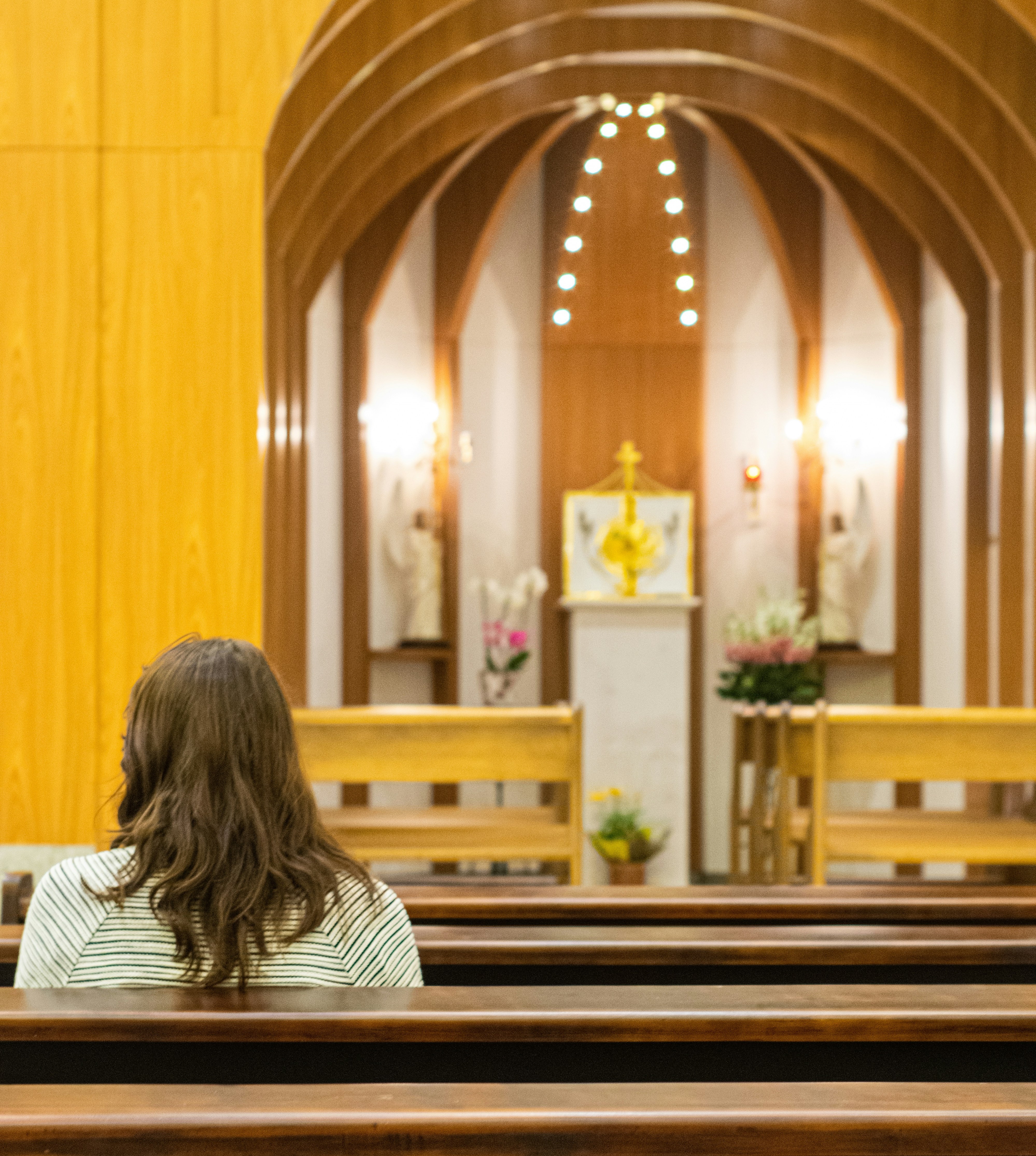


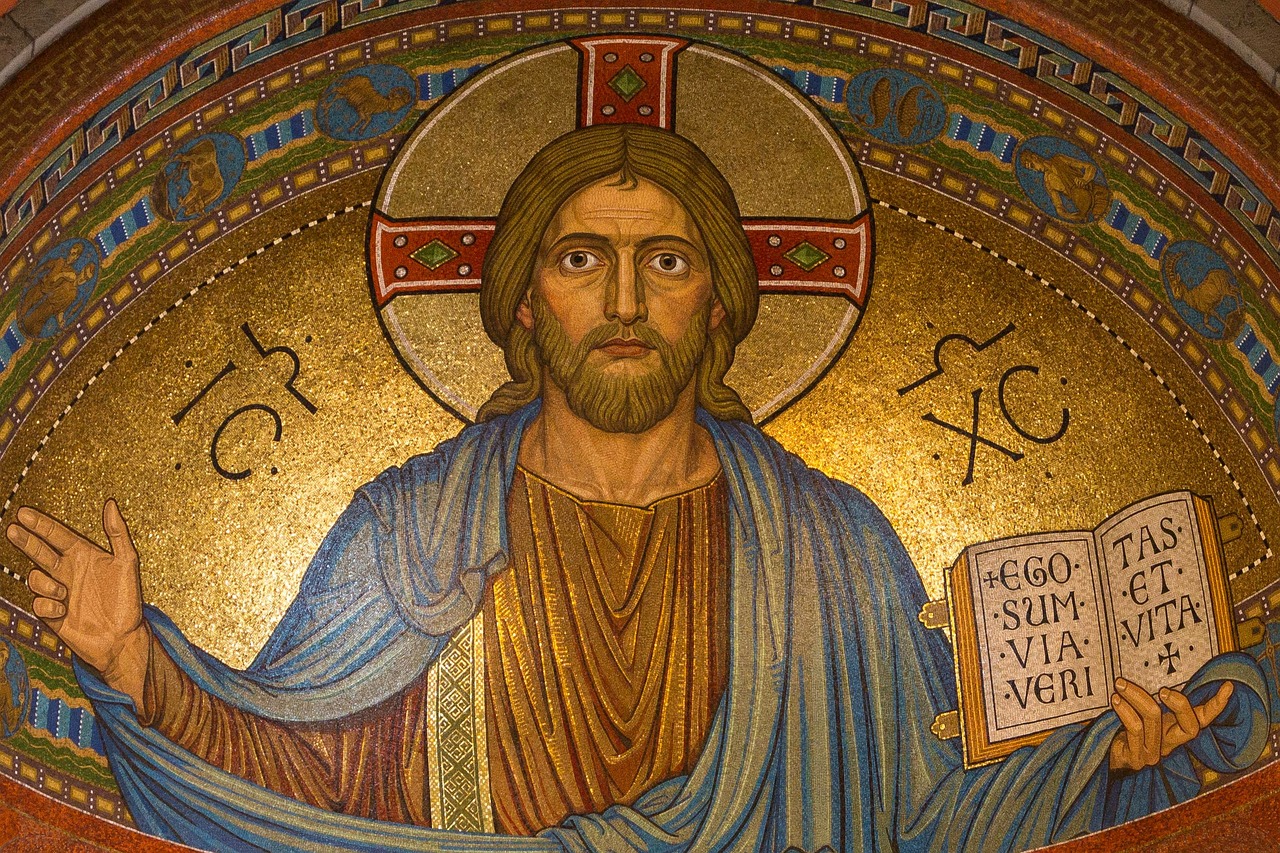
 Kathryn Mulderink, MA, is married to Robert, Station Manager for Holy Family Radio. Together they have seven children (including Father Rob), and eleven grandchildren. She is President of the local community of Secular Discalced Carmelites and has published five books and many articles. Over the last 30 years, she has worked as a teacher, headmistress, catechist, Pastoral Associate, and DRE, and as a writer and voice talent for Catholic Radio. Currently, she serves the Church by writing and speaking, and by collaborating with various parishes and to lead others to encounter Christ and engage their faith. Her website is
Kathryn Mulderink, MA, is married to Robert, Station Manager for Holy Family Radio. Together they have seven children (including Father Rob), and eleven grandchildren. She is President of the local community of Secular Discalced Carmelites and has published five books and many articles. Over the last 30 years, she has worked as a teacher, headmistress, catechist, Pastoral Associate, and DRE, and as a writer and voice talent for Catholic Radio. Currently, she serves the Church by writing and speaking, and by collaborating with various parishes and to lead others to encounter Christ and engage their faith. Her website is 
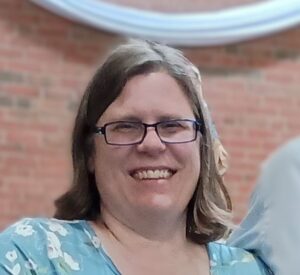 Tami Urcia is a midwestern gal from a large Catholic family. As a young adulthood she was a missionary in Mexico, where she studied theology and philosophy. After returning stateside bilingual, she gained a variety of work experience, traveled extensively and finished her Bachelor’s Degree at Brescia University. She loves organizing and simplifying things, watching her children play sports, deep conversations with close family and friends and finding unique ways to brighten others’ day with Christ’s love. She works full time at Diocesan in the Software Department and manages the Inspiration Daily reflections. She is also a guest blogger on
Tami Urcia is a midwestern gal from a large Catholic family. As a young adulthood she was a missionary in Mexico, where she studied theology and philosophy. After returning stateside bilingual, she gained a variety of work experience, traveled extensively and finished her Bachelor’s Degree at Brescia University. She loves organizing and simplifying things, watching her children play sports, deep conversations with close family and friends and finding unique ways to brighten others’ day with Christ’s love. She works full time at Diocesan in the Software Department and manages the Inspiration Daily reflections. She is also a guest blogger on 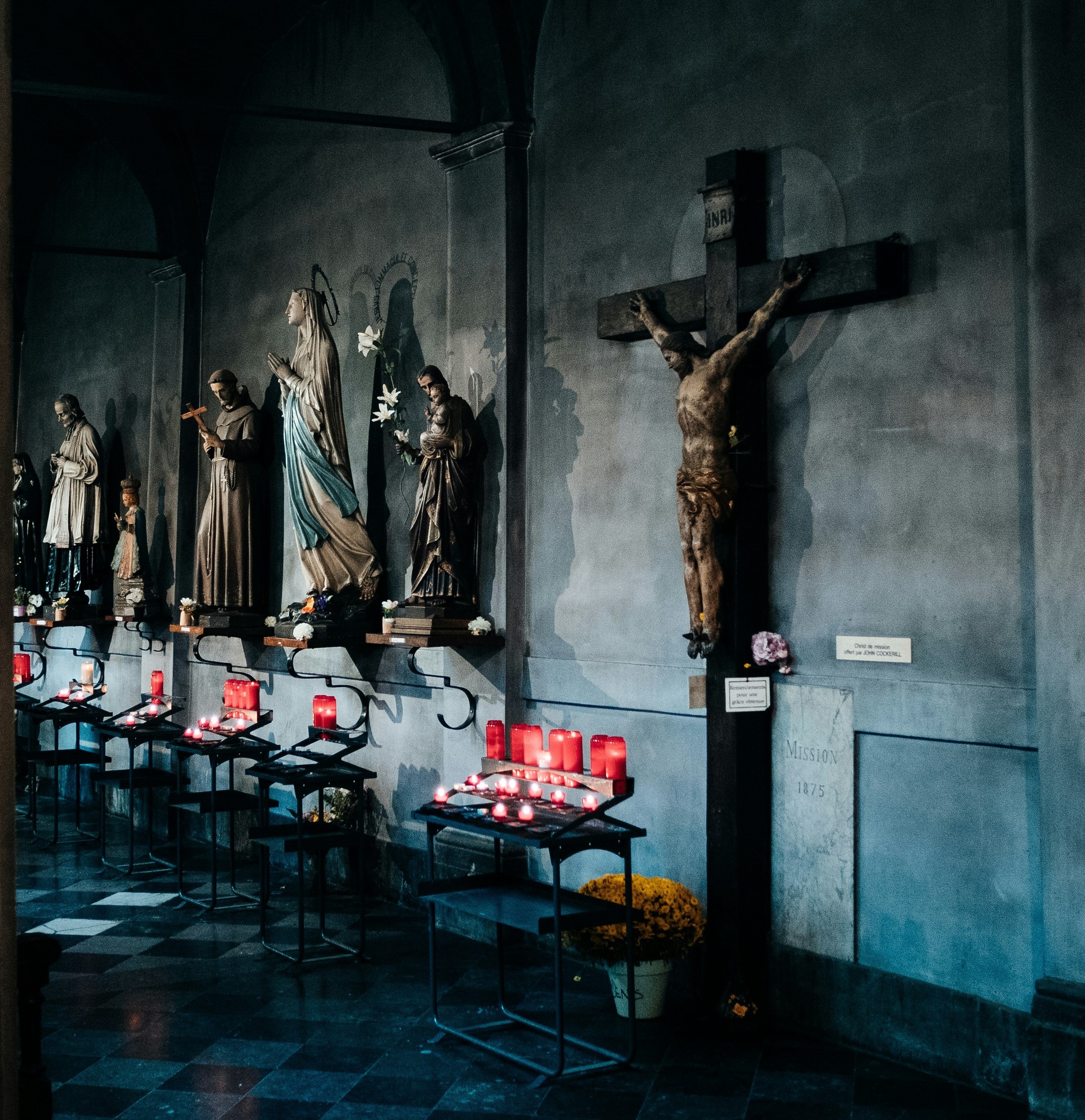

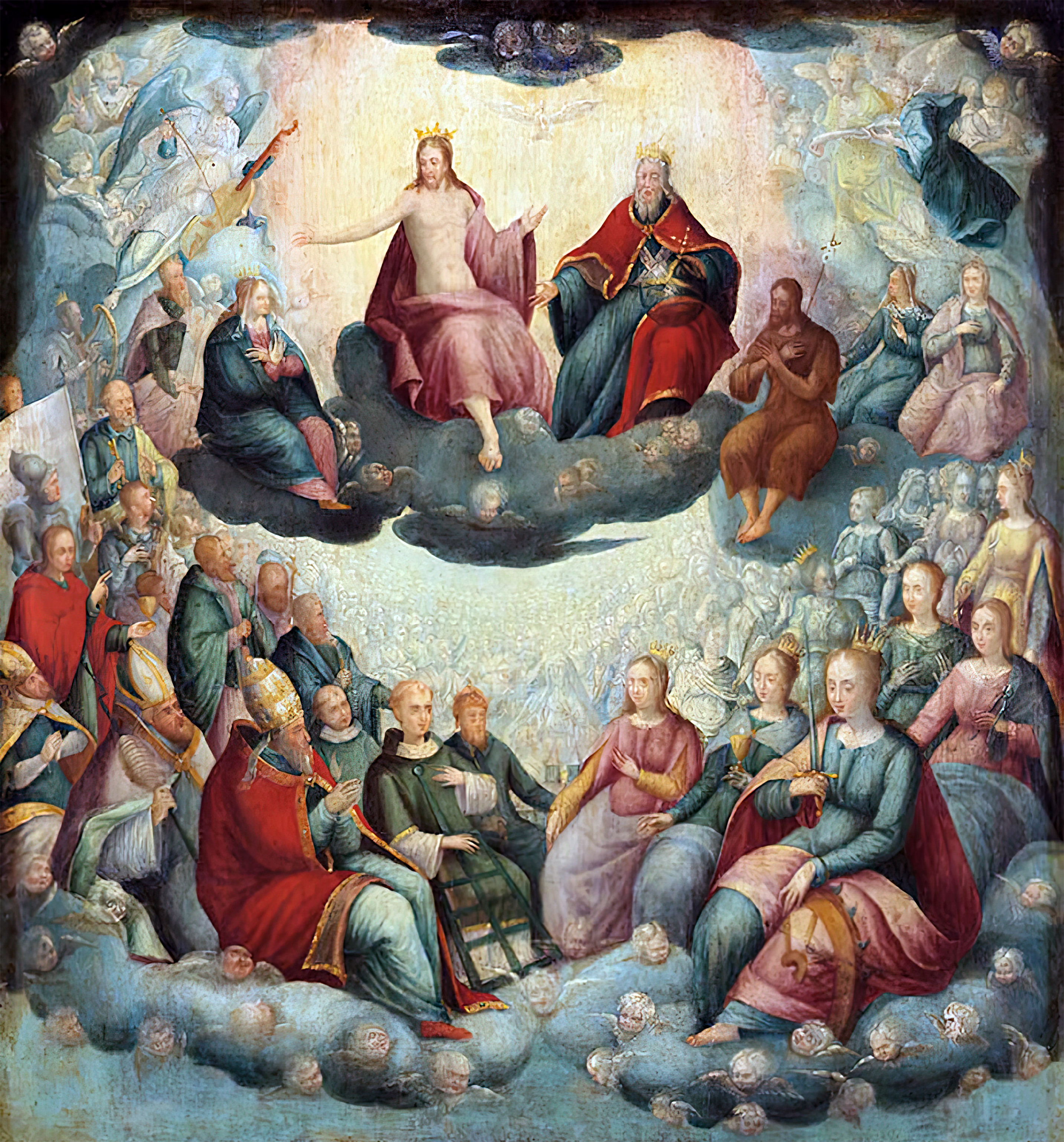
 Colleen Orchanian is a podcaster, blogger, and spiritual director who desires to help others have a more profound encounter with God. She is the author of three books: Nearer My God to Thee, Times of Grace, and Lingering with God. Her podcast is Food for Thought (Spiritually Speaking). You can learn more at
Colleen Orchanian is a podcaster, blogger, and spiritual director who desires to help others have a more profound encounter with God. She is the author of three books: Nearer My God to Thee, Times of Grace, and Lingering with God. Her podcast is Food for Thought (Spiritually Speaking). You can learn more at 
 Allison Gingras (
Allison Gingras (
 Lily, age 23, is a Michigan native and cradle Catholic who has spent most of her life exploring her own reasons to embrace her faith fully. She attended Franciscan University of Steubenville, where she discovered the beauty of her personal relationship with Christ and the Church. After college, she worked in Montessori Education for three years and recently transitioned to nannying. She is excitedly preparing for marriage in May 2025 and spends most of her time reading, wedding planning, and enjoying her dog and family!
Lily, age 23, is a Michigan native and cradle Catholic who has spent most of her life exploring her own reasons to embrace her faith fully. She attended Franciscan University of Steubenville, where she discovered the beauty of her personal relationship with Christ and the Church. After college, she worked in Montessori Education for three years and recently transitioned to nannying. She is excitedly preparing for marriage in May 2025 and spends most of her time reading, wedding planning, and enjoying her dog and family!
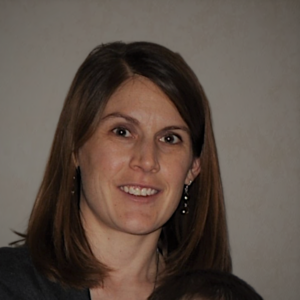 Kimberly Andrich writes from the perspective of having a hidden, chronic illness and experiencing a deep, continuous conversion through being yoked to Jesus in the day-to-day trials and joys of life. She is a wife, mother of 5, and daughter of the King. Kimberly also writes for
Kimberly Andrich writes from the perspective of having a hidden, chronic illness and experiencing a deep, continuous conversion through being yoked to Jesus in the day-to-day trials and joys of life. She is a wife, mother of 5, and daughter of the King. Kimberly also writes for 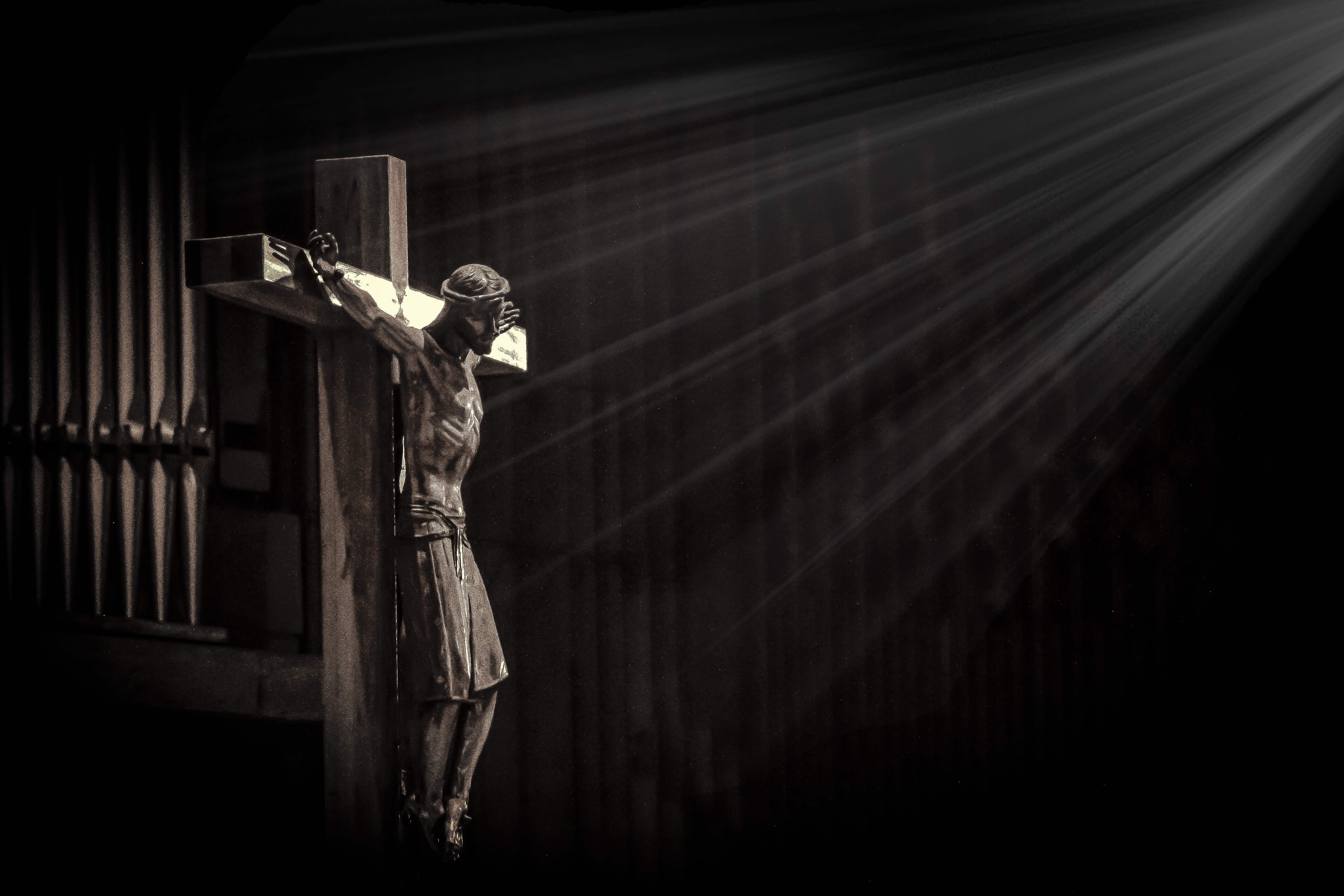
 Susan Ciancio has a BA in psychology and a BA in sociology from the University of Notre Dame, with an MA in liberal studies from Indiana University. For the past 19 years, she has worked as a professional editor and writer, editing both fiction and nonfiction books, magazine articles, blogs, educational lessons, professional materials and website content. Thirteen of those years have been in the pro-life sector. Currently Susan freelances and writes weekly for HLI, edits for American Life League, and is the executive editor of Celebrate Life Magazine. She also serves as executive editor for the Culture of Life Studies Program—an educational nonprofit program for K-12 students. You can reach her at
Susan Ciancio has a BA in psychology and a BA in sociology from the University of Notre Dame, with an MA in liberal studies from Indiana University. For the past 19 years, she has worked as a professional editor and writer, editing both fiction and nonfiction books, magazine articles, blogs, educational lessons, professional materials and website content. Thirteen of those years have been in the pro-life sector. Currently Susan freelances and writes weekly for HLI, edits for American Life League, and is the executive editor of Celebrate Life Magazine. She also serves as executive editor for the Culture of Life Studies Program—an educational nonprofit program for K-12 students. You can reach her at 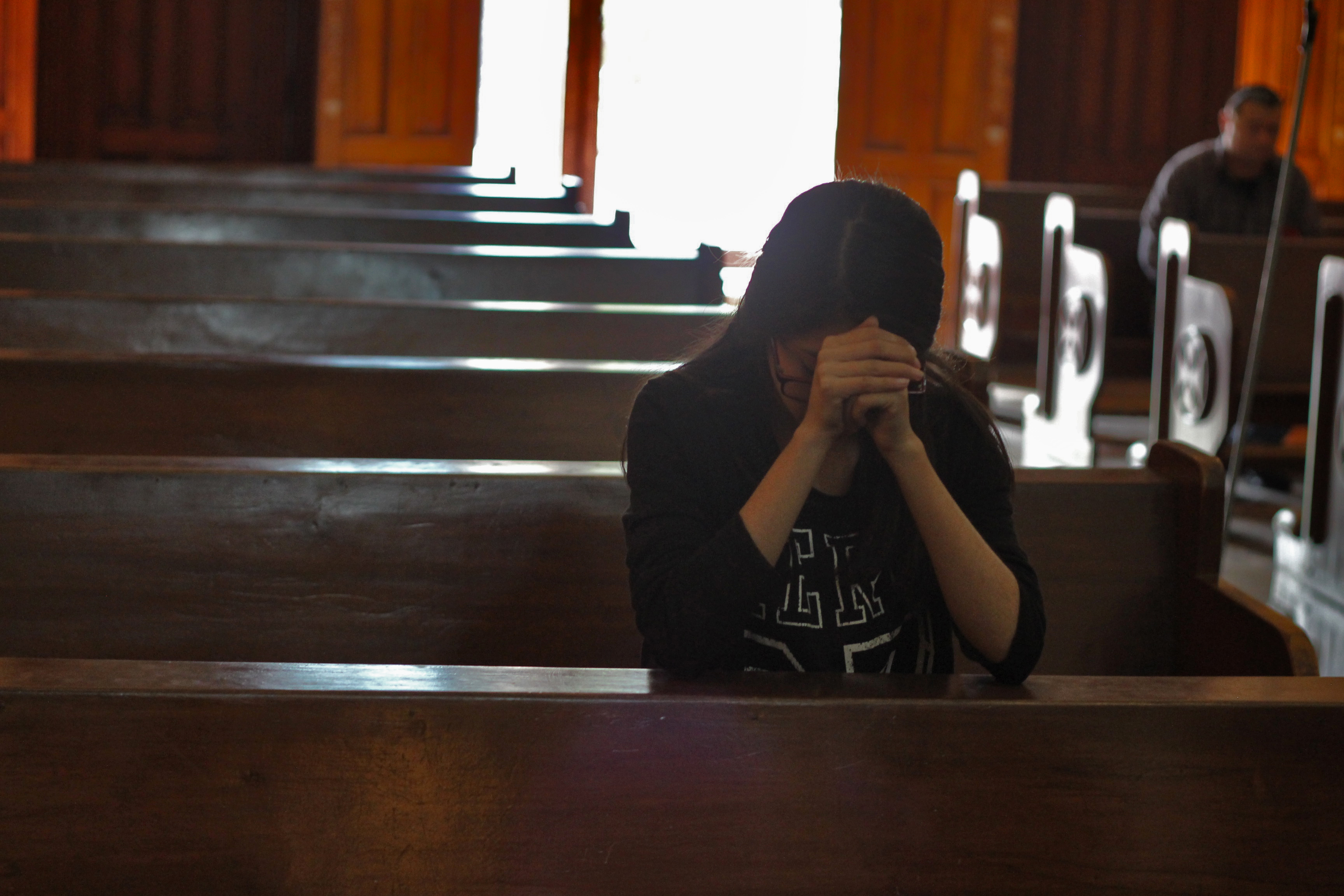

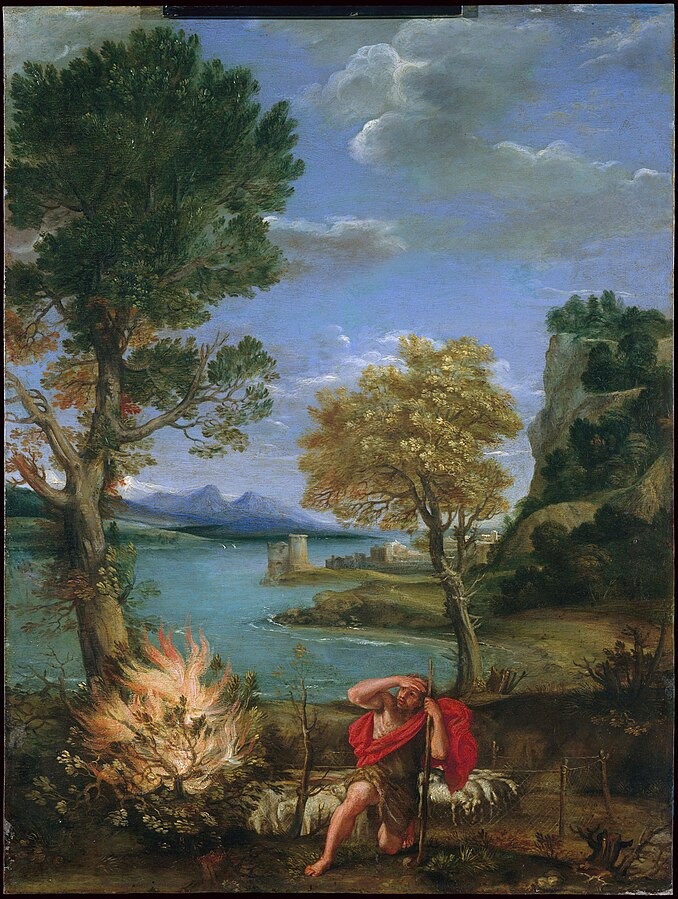
 Kate Taliaferro is an Air Force wife and mother. She is blessed to be able to homeschool, bake bread and fold endless piles of laundry. When not planning a school day, writing a blog post or cooking pasta, Kate can be found curled up with a book or working with some kind of fiber craft. Kate blogs at
Kate Taliaferro is an Air Force wife and mother. She is blessed to be able to homeschool, bake bread and fold endless piles of laundry. When not planning a school day, writing a blog post or cooking pasta, Kate can be found curled up with a book or working with some kind of fiber craft. Kate blogs at 